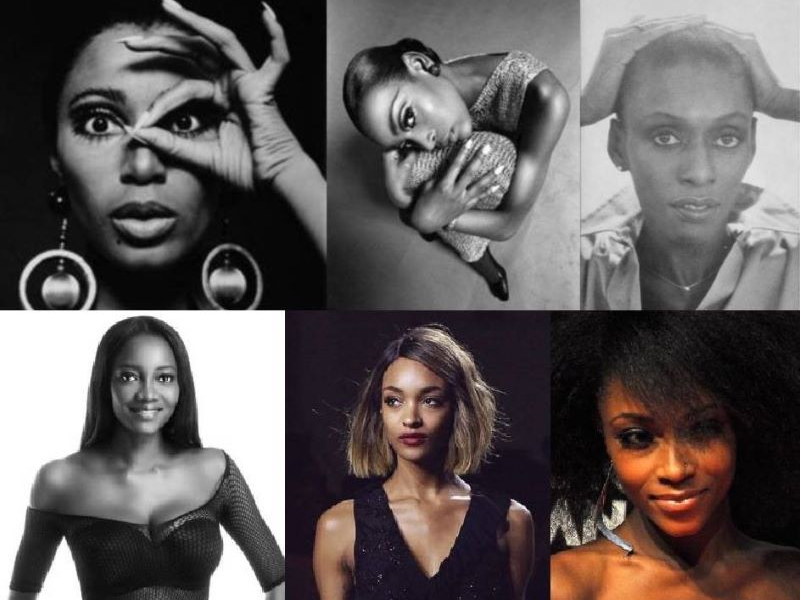Images credited below.
The fashion industry has always had issues of inclusivity and diversity. Though it has gotten better, the issue is still prevalent today. The percentage of Black models compared to their White counterparts is still low. For years, modeling agencies tended to look for a particular body type and skin color. However, this has changed with time as the likes of Naomi Campbell and Iman dismantled stereotypes, set new standards, and redefined what it means to be beautiful. These women put the SUPER in supermodels and remained at the top of the game for years, paving the way for a younger generation of models. Making their way into the fashion industry was not an easy task, but these Black supermodels catwalked their way into shifting the industry’s status quo. Let’s travel down memory lane as we explore the remarkable evolution of Black supermodels.
Pioneers of the Runway (1950s-1970s)
This was the era when Blacks were still suffering from racial segregation and discrimination. It was a tough time for Black models who had too many challenges to overcome before they could break into mainstream fashion. These daring pioneers broke into the predominantly White fashion industry, opening the doors for future generations. The world had no choice but to notice their stunning looks and undeniable talent.
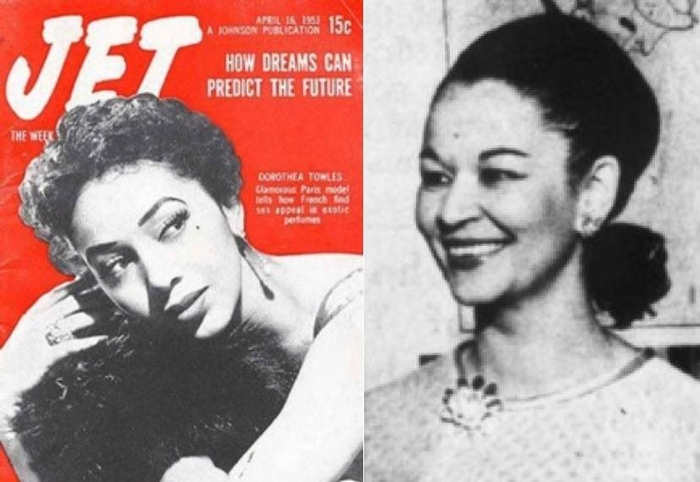
Dorothea Towles (Fair Use image), Sara Lou Harris (Public Domain)
The likes of Dorothea Towles and Sara Lou Harris defied the odds in the 1950s, finding success in European markets before gaining recognition at home.
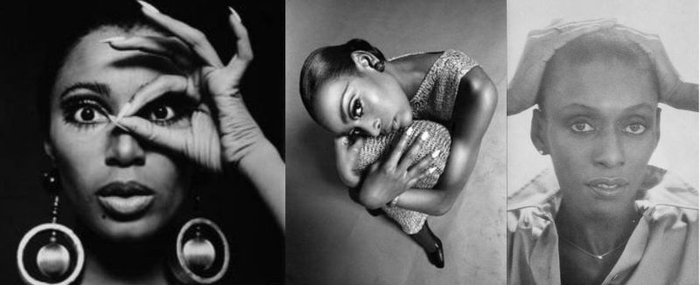
Donyale Luna (Fair Use image), Naomi Sims (Fair Use image), Bethann Hardison (bethannhardison.com)
Donyale Luna: She became the first Black model to appear on the cover of British Vogue and a muse to iconic photographers like Richard Avedon in the 1960s.
Naomi Sims: She became the first African American model to be on the cover of Ladies’ Home Journal and Life magazine. She graced countless runways and magazine covers in the late 60s and early 70s.
Bethann Hardison: She was cast in one of the decade’s most influential fashion shows that helped put Black models on the fashion map – the Battle of Versailles in 1973 in Paris.
The Supermodel Era (1980s-1990s)
This was the era that ushered in the icons of the runway we remember today. By this time, Black models had proved they could be just as profitable as White girls. These trailblazers became household names, gracing the covers of top fashion magazines and catwalking their way to fame around the world. Going beyond the runway, these groundbreaking models went on to become successful entrepreneurs, actresses, and cultural icons.
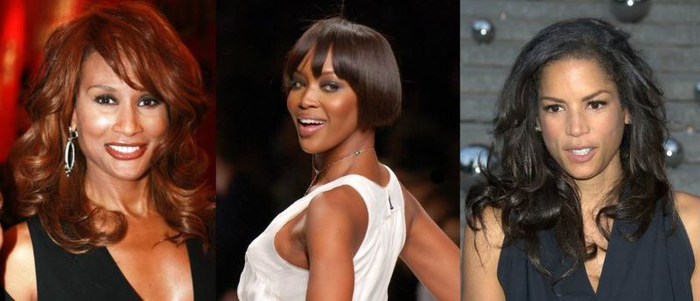
Beverly Johnson (Christopher Peterson, CC BY 3.0, via Wikimedia Commons), Naomi Campbell (Jgro888 at English Wikipedia., CC BY-SA 2.5, via Wikimedia Commons), Veronica Webb (David Shankbone, CC BY 2.5, via Wikimedia Commons)
Beverly Johnson: This lady made worldwide headlines when she became the first Black model to land the cover of American Vogue in 1974. Throughout the 1980s and 1990s, she continued to make waves in the fashion industry, becoming one of the most sought-after models of her time.
Iman: She was a global fashion muse for so many designers: Gianni Versace, Yves Saint Laurent, Halston, Calvin Klein, and Donna Karan. The Somali model continues to be a voice of diversity in the modeling and entertainment industry.
Naomi Campbell: She is one of the greatest Black supermodels to walk the runway. She was one of five original models to earn the title “supermodel” This Jamaican-English catwalk queen was the first Black model to grace the cover of Paris Vogue – but only after Yves St. Laurent threatened to withdraw his advertising after it refused to place Campbell, or any Black model, on the pages. Refusing to age, Campbell closed out the 2019 Valentino show after a 14-year hiatus from working with the designer.
Veronica Webb: This lady graced the covers of top fashion magazines and walked the runway for some of the biggest names in fashion throughout the 1990s. She was also the first Black model to score a major cosmetics campaign, with Revlon in 1992. Webb remains a respected figure in the fashion world.
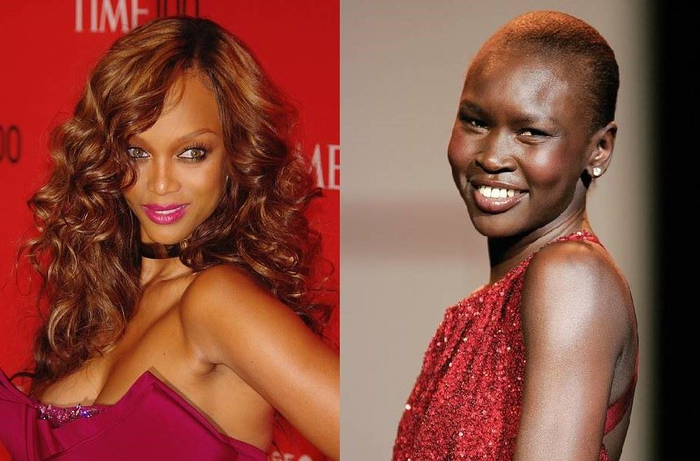
Tyra Banks (David Shankbone , CC BY 3.0, via Wikimedia Commons), Alek Wek (
The Heart Truth, CC BY-SA 2.0, via Wikimedia Commons)
Tyra Banks: She was the first Black model to sign a contract with the Victoria’s Secret brand and was an Angel from 1997 to 2005. Her modeling career hit gold when she became the first Black woman to appear on the cover of the Sports Illustrated Swimsuit issue in 1996 and 1997. She is best known for her role as the host and head judge of America’s Next Top Model.
Alek Wek: This ebony beauty quickly gained recognition with her signature shaved head and dark skin, becoming a prominent figure during the 1990s. She challenged traditional beauty standards and helped to diversify the modeling world with her unique look. She walked the runway for some of the biggest fashion houses in the world and appeared on the covers of numerous magazines. Today, Wek continues to be a successful designer and advocate. She launched her handbag line, Wek1933, in 2010.
The Era of Diversity (2000s – Present)
The legacy of the trailblazing Black supermodels of the 80’s and 90’s paved the way for an even greater era of diversity and inclusion. The 2000s and the years after have seen a successful generation of Black models who have continued to prove that beauty comes in all shapes, sizes, and shades. We cannot forget how social media platforms have also been essential in empowering a new generation of Black models and providing new avenues for self-expression. As the fashion industry evolves, these trailblazing women continue to play an important role in shaping cultural perceptions of beauty and championing inclusivity.
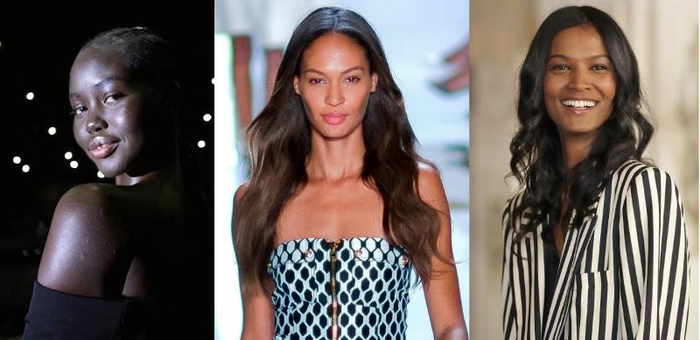
Adut Akech (Jean du Sartel-Heintz, CC BY 3.0, via Wikimedia Commons), Joan Smalls (CHRISTOPHER MACSURAK, CC BY 2.0, via Wikimedia Commons), Liya Kebede (nicolas genin, CC BY-SA 2.0, via Wikimedia Commons)
Adut Akech: At 16 she was cast for Saint Laurent’s Spring/Summer 2017 show as a global exclusive. This served as her first big break. She soon signed on to Elite Model Management in New York. After that, Adut Akech found work walking for fashion brands like Givenchy, Prada, Tom Ford, and Versace. She has also walked in the New York Fashion Week. She became known for her dark skin and proudly donning her natural hair. The South Sudanese Australian model has been an advocate for refugees and people of color.
Joan Smalls: She became the first Latina model to represent Estée Lauder cosmetics in 2011, a significant milestone for diversity in the beauty industry. She has started to take on acting work and also helms her own swimsuit and lingerie collection for a range of body types/sizes with the Walmart line Smart and Sexy.
Liya Kebede: This young lady is one of the highest-paid models in the world. The Ethiopian model was the first Black model for Estée Lauder in 2003. She was also the first Black model to rank number one on models.com’s official top 50. She launched her clothing line, Lemlem which continues to thrive, promoting sustainable practices and celebrating Ethiopian heritage.
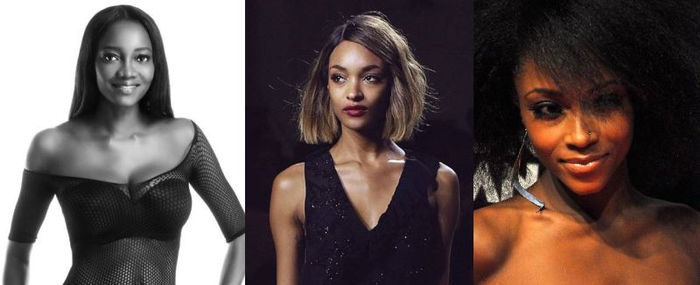
Oluchi Onweagba (Instagram | @oluchi1), Jourdan Dunn (Walterlan Papetti, CC BY-SA 4.0, via Wikimedia Commons), Yaya DaCosta (Nick Stepowyj, CC BY 2.0, via Wikimedia Commons)
Oluchi Onweagba: This Nigerian editorial, swimsuit, and runway model got her first start after winning the ‘The Face of Africa’ competition at 17 years old in 1998. She made history as the first Nigerian model to grace the cover of Italian Vogue. She has been on the front covers of New African Women Magazine, Mania Magazine, 1-D Magazine, and many others.
Jourdan Dunn: At 16, she signed on Storm Model Management and has been making her mark as one of the standout Black models since her runway debut in 2007. She rose to prominence in the mid-2000s and quickly became one of the most sought-after models in the fashion industry. In 2008, Dunn became the first Black model to walk the runway at the House of Prada in over a decade. She has campaigned for brands like Burberry, Balmain, and Tommy Hilfiger. From 2012 to 2014, she appeared in the Victoria’s Secret Fashion Show and walked in the New York Fashion Week, Paris Fashion Week, and Milan Fashion Week.
Yaya DaCosta: She is known as the Cycle 3 runner-up in America’s Next Top Model. This model and actress of Brazilian and African-American descent has graced the covers of Hype Hair, and Splash Magazine, and featured on the covers of Elle South Africa and W Magazine.

